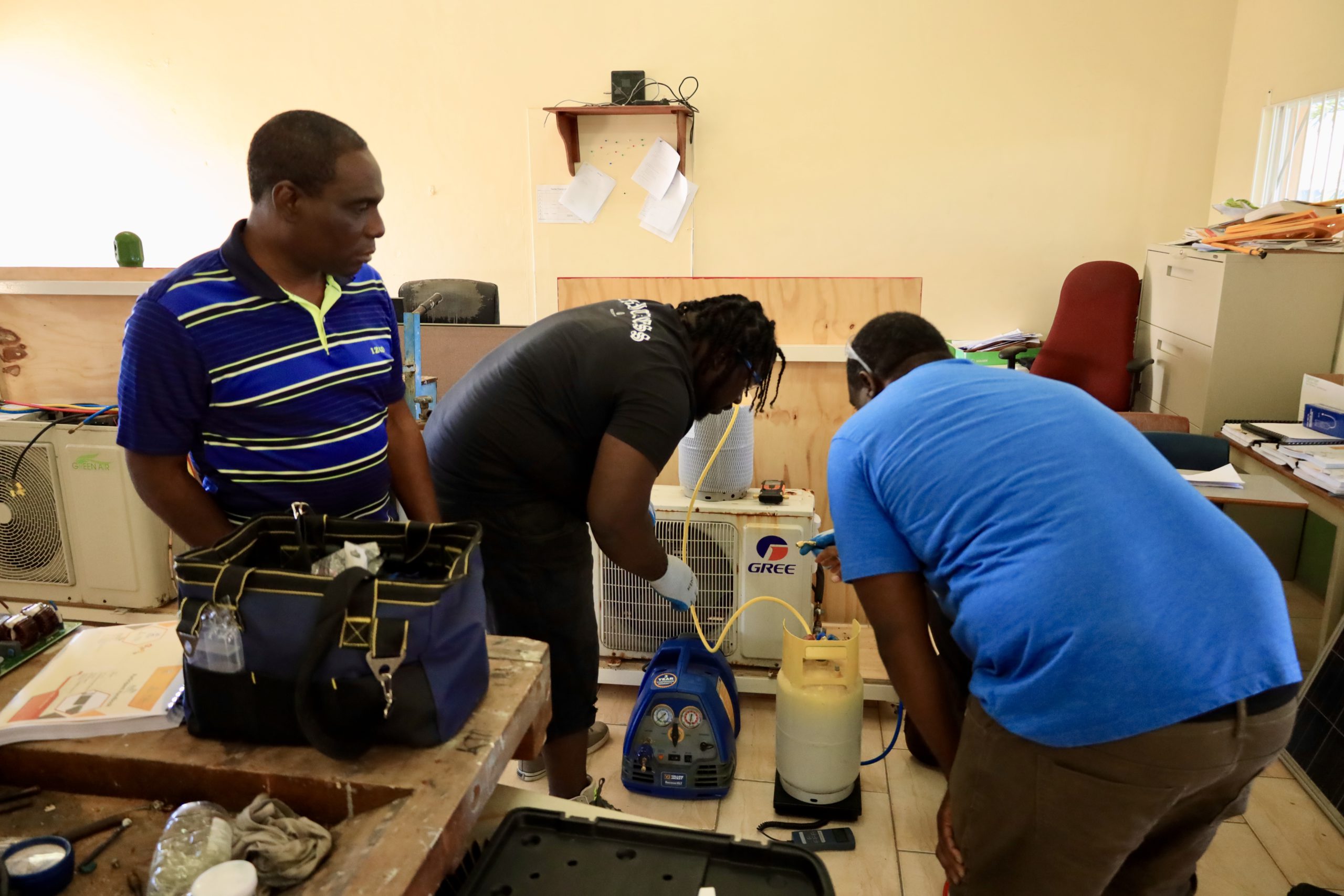Department of Environment Completes Training Workshop on Good Refrigeration Practices
The Department of Environment in St. Kitts concluded a pivotal six-day workshop on “Good Refrigeration Practices,” marking a significant step towards achieving the Federation’s sustainable development goals and aligning with international environmental agreements. Held from February 10th to 15th, 2025, at the Avec Compound, the training equipped 22 local technicians with the necessary skills to transition to environmentally sound refrigeration and air-conditioning (RAC) practices. This initiative directly supports the country’s Sustainable Island State Agenda and the Montreal Protocol’s HCFC Phase-Out Management Plan, both crucial in the global fight against climate change and ozone layer depletion. The workshop’s intensive curriculum blended theoretical instruction with hands-on practical experience, providing participants with a comprehensive understanding of sustainable RAC techniques.
The training program delved into critical aspects of sustainable refrigeration, including the safe handling of equipment, implementing regular maintenance procedures, and employing effective refrigerant recovery strategies. A central theme of the workshop was educating participants about the detrimental effects of ozone-depleting substances (ODS) on the ozone layer, human health, and the overall well-being of the planet. By fostering awareness of these environmental and health consequences, the Department of Environment aims to instill a culture of responsibility and sustainable practices within the RAC sector. This knowledge empowers technicians to make informed decisions that prioritize environmental protection and contribute to a healthier future for the Federation.
Mrs. Kolene Latham, the National Ozone Coordinator, underscored the importance of such training initiatives in building local technical capacity and fostering a culture of sustainability. She highlighted the workshop’s contribution to national efforts in environmental protection and climate change mitigation, emphasizing the critical role of skilled technicians in driving the transition to eco-friendly refrigeration practices. The successful completion of the workshop represents a concrete step towards achieving these goals, empowering participants with the expertise to implement sustainable solutions within the RAC industry. This, in turn, strengthens the Federation’s commitment to international environmental agreements and reinforces its dedication to a sustainable future.
The culmination of the six-day training involved a practical examination for all participants, serving as a crucial assessment of their acquired knowledge and skills. Those who successfully pass the examination will be awarded certificates of participation, validating their expertise in sustainable refrigeration practices. This certification not only recognizes individual achievements but also elevates the overall quality of services within the RAC sector in St. Kitts. By ensuring that technicians possess the necessary competencies, the program indirectly contributes to strengthening consumer confidence in the industry’s commitment to environmentally responsible practices.
The impact of this workshop extends beyond individual skill development; it signifies a broader national commitment to environmental stewardship. By reducing reliance on harmful refrigerants and promoting the adoption of environmentally friendly alternatives, the program supports both national and international efforts to combat climate change and protect the ozone layer. This initiative exemplifies the Federation’s dedication to fulfilling its obligations under the Montreal Protocol and advancing the global agenda for sustainable development. The training serves as a tangible demonstration of the country’s proactive approach to environmental protection and its contribution to the collective effort to mitigate the impacts of climate change.
The Department of Environment’s commitment to sustainable refrigeration practices does not end with the completion of this workshop. The Department plans to actively monitor and support the implementation of the learned techniques within the RAC sector, ensuring that the acquired knowledge translates into tangible actions and long-term sustainable change. This ongoing support will be crucial in reinforcing the workshop’s impact and ensuring that the newly acquired skills are effectively applied in practice. Through continuous monitoring and support, the Department aims to foster a sustained shift towards environmentally friendly practices within the refrigeration and air-conditioning industry, contributing to a healthier ozone layer and a more sustainable future for St. Kitts and Nevis.
Share this content:












Post Comment